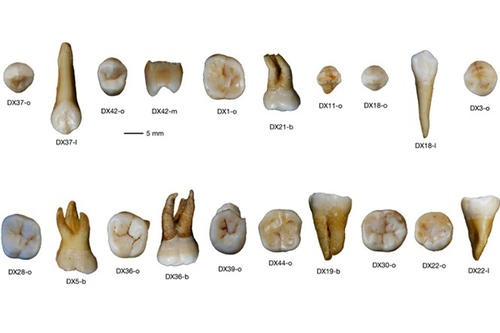
What are clearly modern human teeth, 80,000-120,000 years old, doing in a cave in southeastern China?
They’re turning back the clock on modern humans’ exodus from the African cradle by at least 20,000 years, that’s what. They’re also bolstering the idea that some took a southern migration route to Asia.
Using methods he developed, University researcher R. Lawrence Edwards and Chinese colleagues dated the teeth. No one on the team expected the date to come back so early. According to current theory, modern humans evolved in Africa and only dispersed beyond the eastern Mediterranean relatively recently—perhaps 60,000 years ago, says University anthropologist Kieran McNulty, who was not involved in the China research.
Meanwhile, evidence of modern humans in Europe only appears some 45,000 years ago. With the discovery of such ancient teeth in southeastern China, anthropologists are faced with explaining why, for so many years, a long journey to Asia was feasible, but a short one to Europe wasn’t. Attention centers on the role of Neanderthals, who preceded modern humans in Europe.
- Categories:
- Science and Technology





